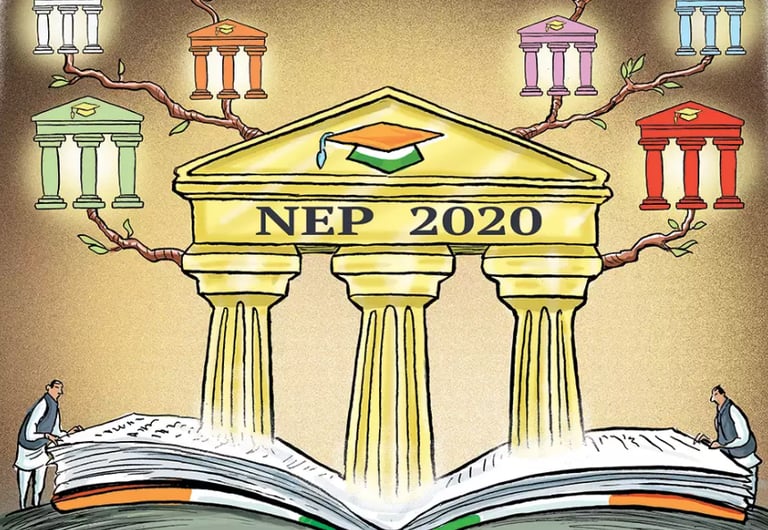"Revitalizing Education: A Closer Look at the New Education Policy"
Understanding New Education Policy


"Revitalizing Education: A Closer Look at the New Education Policy"
Education forms the bedrock of any progressive society, shaping the minds of individuals and providing them with the necessary skills to thrive in an ever-evolving world. Recognizing the need for a comprehensive reform, governments around the globe have been continually striving to create educational frameworks that align with the needs and aspirations of the 21st century. In this regard, the implementation of the New Education Policy marks a significant milestone, heralding a new era of transformation and revitalization in the realm of education.
A Paradigm Shift:
The New Education Policy, introduced with the objective of revamping the education system, ushers in a refreshing paradigm shift. It focuses on fostering holistic development, providing equitable access to education, and nurturing creative thinking among students. One of the notable highlights of this policy is its emphasis on early childhood education, recognizing the crucial role it plays in laying a strong foundation for lifelong learning.
Flexibility and Multidisciplinary Approach:
One of the key pillars of the New Education Policy is its emphasis on flexibility and a multidisciplinary approach. By allowing students to choose subjects across various domains, the policy encourages them to pursue their passions and interests, enabling a well-rounded education. This departure from the traditional compartmentalized approach is aimed at fostering critical thinking, problem-solving skills, and a broader understanding of diverse subjects.
Technology Integration:
In the digital age, where technology permeates every aspect of our lives, the New Education Policy rightly recognizes the importance of technology integration in education. It emphasizes the incorporation of digital tools, online learning platforms, and blended learning approaches to enhance the quality and reach of education. This integration not only prepares students for the digital era but also opens up new avenues for interactive and engaging learning experiences.
Equitable Access and Inclusion:
The New Education Policy places great importance on ensuring equitable access to education for all. It recognizes the significance of bridging the urban-rural divide and addressing socio-economic disparities. Through various measures, such as the establishment of schools in remote areas, provision of scholarships, and inclusive practices, the policy aims to create an education system that leaves no learner behind.
Teacher Empowerment:
Recognizing that teachers are the torchbearers of education, the New Education Policy lays special emphasis on their professional development and empowerment. It highlights the need for continuous training, capacity building, and the creation of a supportive environment that enables teachers to excel in their roles. By nurturing the growth and well-being of teachers, the policy aims to enhance the overall quality of education imparted to students.
The New Education Policy presents a transformative vision for the future of education, one that addresses the evolving needs of society and prepares learners to thrive in a dynamic world. With its focus on holistic development, flexibility, technology integration, equitable access, and teacher empowerment, this policy holds the potential to reshape the educational landscape. As we embark on this journey of revitalization, it is essential for all stakeholders to collaborate and actively participate in realizing the full potential of this policy, ultimately paving the way for a brighter and more inclusive educational future.